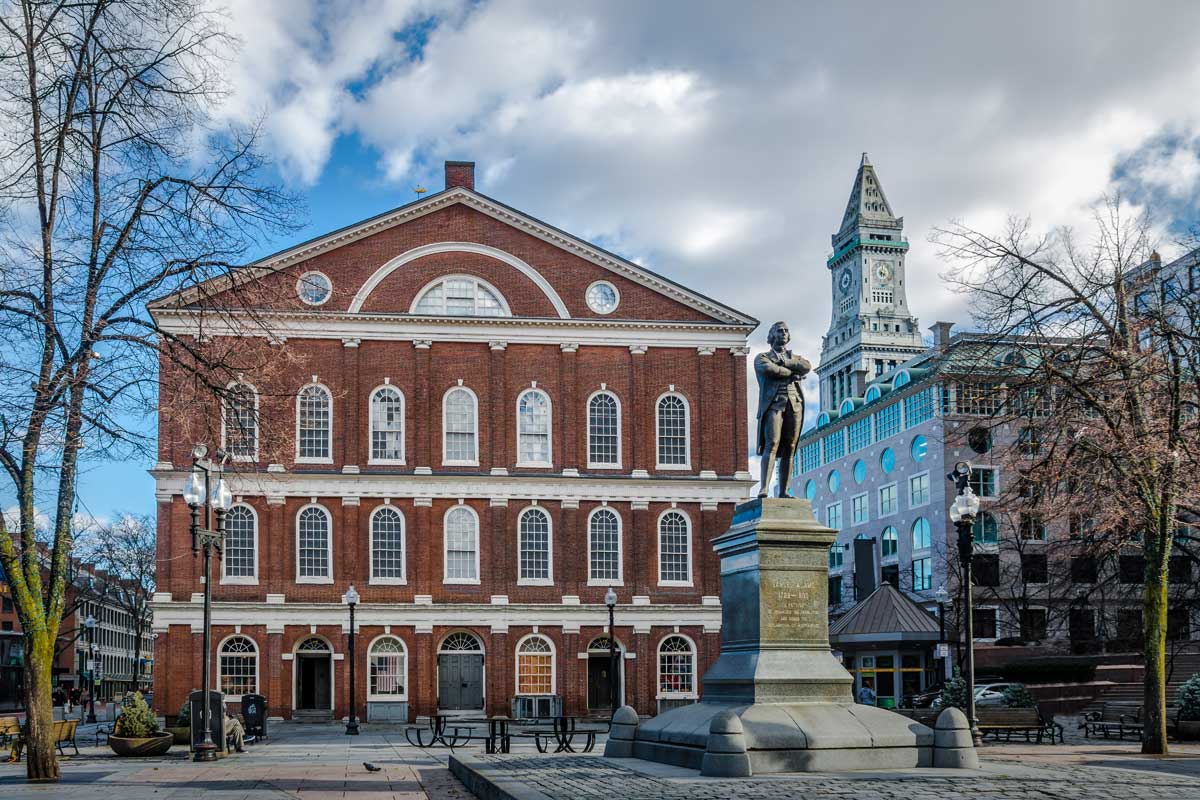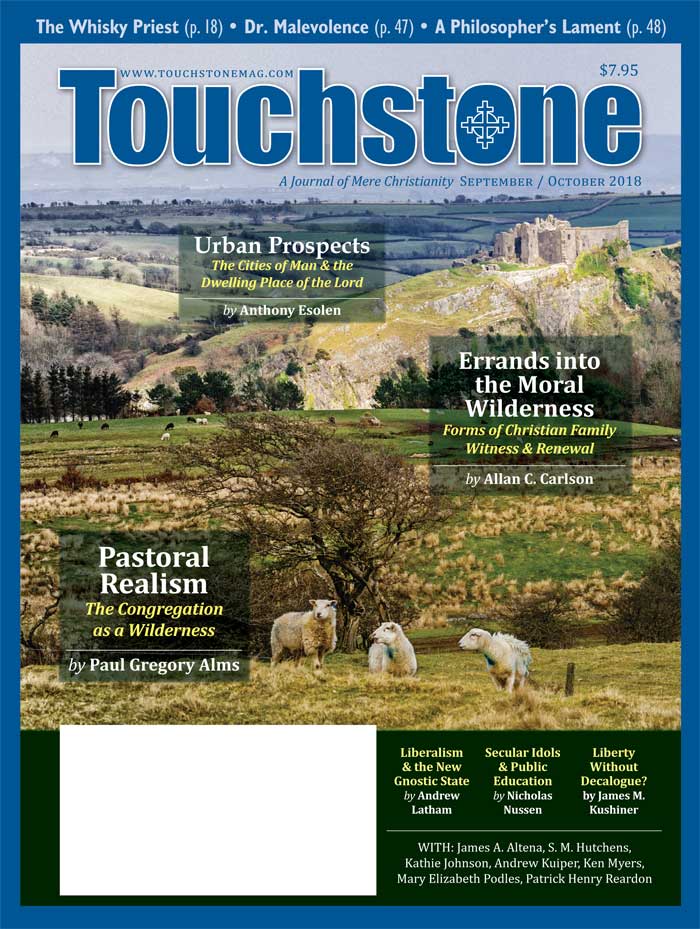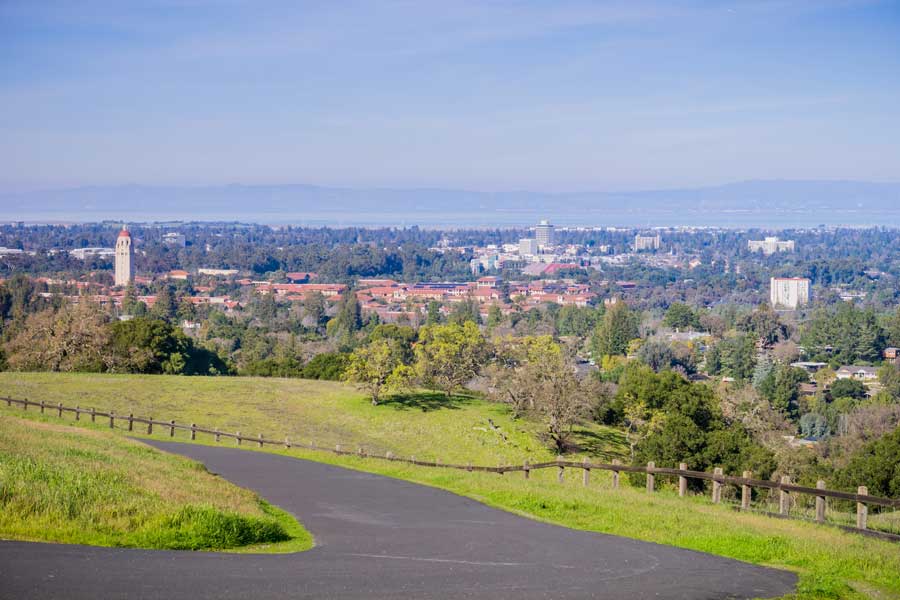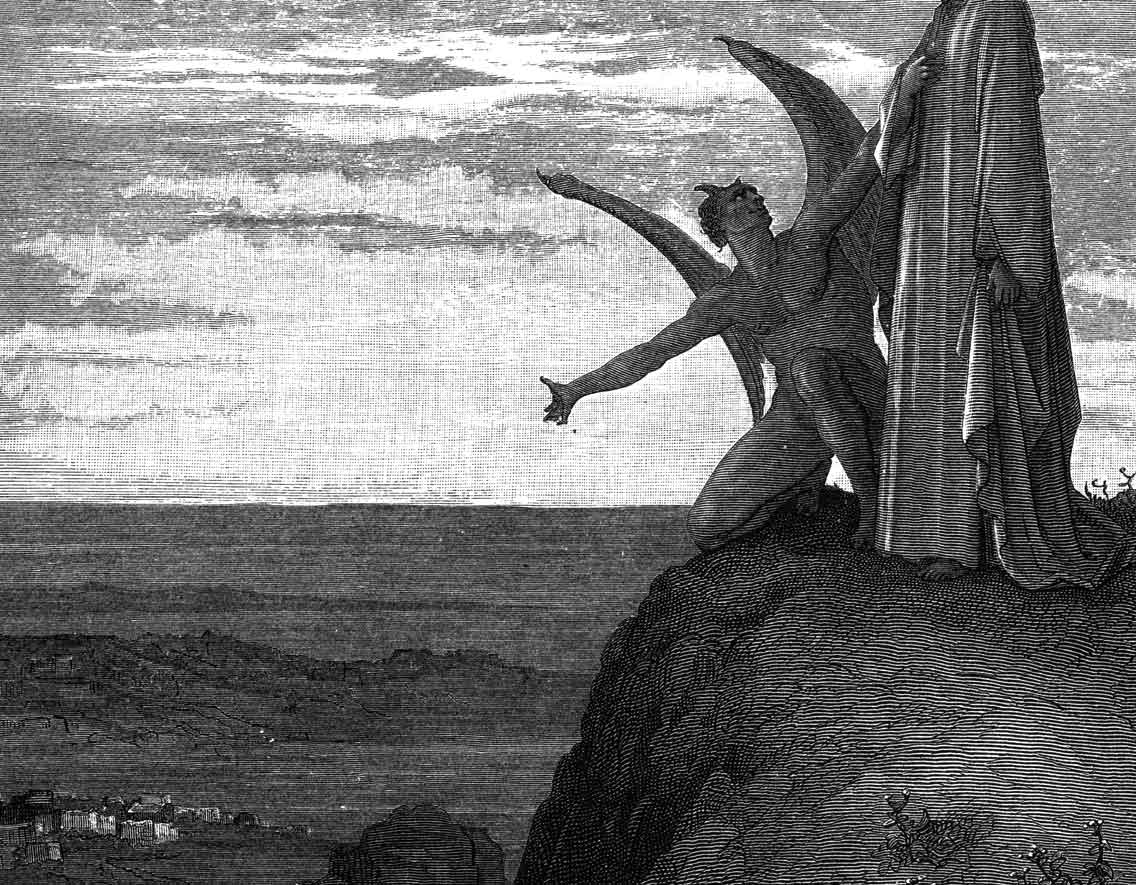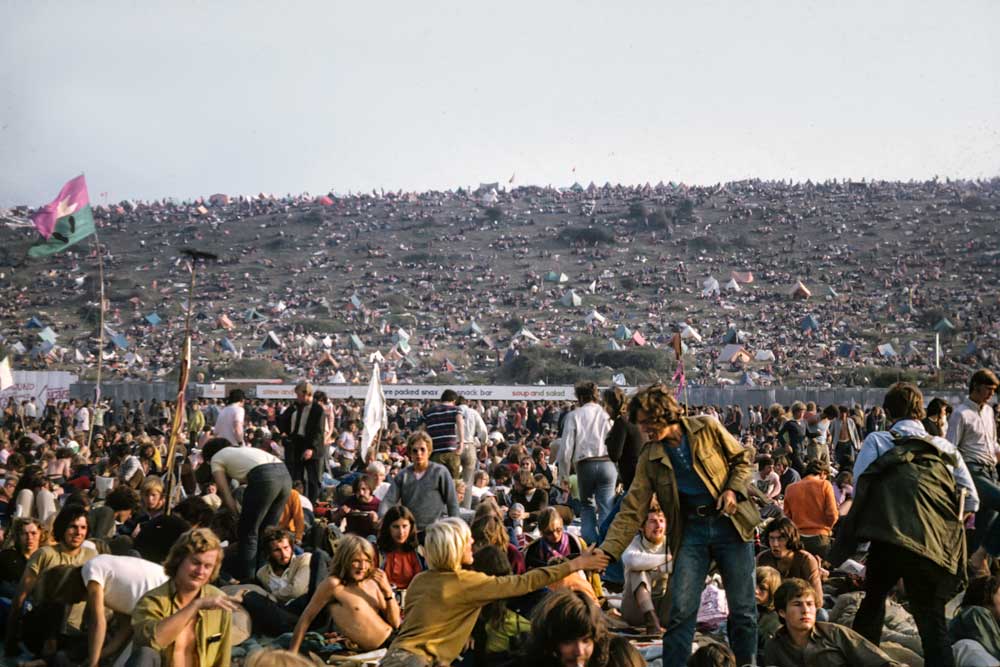Feature
Liberalism Occupied
The Rise of the Gnostic Liberal State After Christianity
by Andrew Latham
Post-liberalism. Beyond liberalism. After liberalism. In recent years, books and articles with titles containing these and similar phrases have proliferated at a breathtaking pace, reflecting a now widely held view that the three-centuries-old liberal era is coming to (has come to?) a decisive end. To be sure, these books and articles often differ significantly in their respective analytical assumptions, political concerns, and practical recommendations. But they share at least one common—indeed, defining—commitment: a belief that, for better or worse, liberalism as a political project is a spent force, and we had better prepare ourselves to endure both its tumultuous death throes and the turbulence that will inevitably accompany the birth of its successor.
But is this an accurate account of where we find ourselves today? Are we really witnessing the demise of liberalism as a world-historical project? Are we as a society actually slouching, via the way station of today's illiberal liberalism, toward the Gomorrah of a definitively post-liberal world?
In a word, no. While it is impossible to gainsay the all-too-evident fact that the liberalism of today is different from that of the seventeenth century, or even that of the first half of the twentieth, claims that these differences are profound enough to signify the end of liberalism underestimate liberalism's ability to adapt itself to changing historical conditions and cultural contexts. Just as liberalism manifested itself as "classical liberalism" in the particular historical circumstances of John Locke's time and, in a very different guise, as "New Liberalism" or "Social Liberalism" in the historical context of John Dewey's time, so it is manifesting itself in distinctive ways in our time.
The challenge today, then, is neither to autopsy liberalism nor to try to limn the contours of some post-liberal political project assumed to be materializing just over the temporal horizon. Rather, the task before us is to specify the cultural forces at work within contemporary American society and to ask how those forces are reshaping the way in which enduring or core liberal ideals and values are being implemented. Once we have done this, it will become clear that the problem today lies not with liberalism per se, but with the gnosticism that in recent decades has replaced Christianity as the cultural matrix within which the liberal project is embedded.
Defining Liberalism
Before we proceed, however, it is necessary to define this thing called liberalism. As the English political philosopher John Gray argues in his classic book Liberalism (1986, 1995), it is a mistake to approach this task as if liberalism has a single unchanging nature or essence. It is better, he says, to treat liberalism as a tradition of political thought that coheres around a distinctive set of themes but that manifests itself quite differently in different historical and national contexts. Gray then enumerates a number of enduring leitmotifs that define the liberal tradition, three of which I think are particularly important:
• Individualism—belief in the moral primacy of the person over and against the claims of any collective;
• Egalitarianism—a commitment to the basic moral equivalence of all human beings; and
• Meliorism—the conviction that the human condition can be improved through the use of critical reason.
To Gray's list I would add one more. Drawing on the work of Pierre Manent, I would include:
• Emancipation—a commitment to the liberation of the "sovereign human will" from all constraining externalities.
While this commitment is not an exclusive property of liberalism (it is evident, for example, in the thought of both Machiavelli and Nietzsche), it does seem to me to be an enduring thread within the liberal tradition.
At one level, then, liberalism can be understood as a set of abstract concepts or intellectual commitments. As Gray argues, however, in the real world, liberalism is never simply a free-floating congeries of ideas or abstractions taking the same form wherever it touches down. Rather, it assumes different forms as it is implemented in different national settings or in the same national setting at different historical junctures. French liberalism, then, is distinct from British liberalism, and American liberalism in the seventeenth century is different from American liberalism in the early twentieth. But, Gray insists, these manifold varieties of liberalism are not "two or more traditions or a diffuse syndrome of ideas." Rather, they are "separate branches of a common lineage," "variations on a small set of distinctive themes."
This being the case, how can we account for the variations? Gray's own answer to this is serviceable enough for his purposes: various crises in modernity manifested themselves in different ways in different national and cultural settings, each eliciting highly specific responses. For my purposes, though, some refinement is required. In place of the somewhat nebulous claim that variations in liberalism are triggered by "crises in modernity," my claim is that in any given historical setting what we might label "real, existing liberalism" is the product of the interaction of the abstract liberal vision described above with the concrete social challenges of a given historical moment—or rather with the aspirations and anxieties generated by those concrete challenges—and with the wider culture.
Early America
Thus, for example, during the American Revolutionary era, "real, existing liberalism" was conditioned by the core liberal principles articulated above—individualism, egalitarianism, meliorism, and emancipation—along with the principles associated with civic republicanism. These constituted the primum mobile of the early American experiment in ordered liberty. But the way in which these ideas were implemented was itself conditioned by the concrete challenges confronting the liberals of the time—specifically, the threat posed to individual liberty by a tyrannical political order, actual in the case of the British state, potential in the case of the under-construction American one.
As a result, early American liberalism sought to advance its core principles by devising a political system of negative liberty that both limited the power of the state and created a robust zone of autonomy around the individual citizen. The latter was secured by the rights to free speech, assembly, petition, and the free exercise of religion.
Because politics is always downstream from culture, the "real, existing liberalism" of the early national era was also shaped, inflected, and limited by the wider cultural matrix from which it emerged. Left unchecked, as Alexis de Tocqueville grasped all too clearly, the inner logic of classical liberalism always tends toward more individualism, more meliorism, more egalitarianism, etc., with the logical outcome being an atomized political and social order in which all organic, natural, and pre-political human bonds are dissolved and the sovereign human will is freed from all internal and external constraints. But in the post-Revolutionary era, as Tocqueville also understood, this inner logic was checked by America's "spirit of religion"—that is, by the admixture of Christian natural law and biblical anthropology that underpinned and suffused early American social imagery.
According to Tocqueville, foundational and largely unquestioned beliefs about the sovereignty of God, the fallen and fixed nature of humanity, the naturalness of marriage and family, the organic character of political community, and the inevitability of hierarchy all worked to temper the propensity to recast human nature and society according to the dictates of unconstrained human will inherent in America's "spirit of liberty." The result was a distinctively Christian liberalism that provided a socio-political framework within which what Russell Hittinger has called "the three necessary societies"—domestic society (marriage and family), the polity, and the church—could, and did, flourish.
Twentieth-Century America
Fast forward to the opening decades of the twentieth century and we see a similar dynamic at work in the Social Liberalism of John Dewey and the progressive reformers. Once again, liberals sought to give effect to liberalism's core ideals, only this time in the context of a new set of anxieties raised by rapid industrialization, urbanization, rising inequality, and what many progressives characterized as the moral degeneracy associated with widespread poverty.
In order to address these new challenges—and drawing on novel ideas pioneered in countries like Britain, France, Italy, and especially Germany—progressives abandoned the principles of negative liberty and the limited state and embraced instead those of positive liberty and its handmaiden, the interventionist, administrative state. Limited government, the rule of law, and other hallmarks of classical liberalism were to varying degrees replaced by new modalities of rule that permitted the state to regulate more and more areas of life. American society remained essentially liberal, only now the state had a whole new set of political tools for perfecting that society.
Left unchecked, of course, this marriage of the liberal project to the administrative state would inevitably have resulted in an authoritarian political order in which all intermediary institutions were swept away by a totalizing state committed to remaking human nature and society. This did not happen, however. The reason: the "really, existing liberalism" of the first half of the twentieth century remained embedded in an essentially Christian cultural matrix that tempered and limited this dynamic.
Certain widespread beliefs, among them the conviction that human beings are bearers of inalienable natural rights, that the nuclear family is a permanent and natural institution, that the administrative state should not interfere in domains reserved to the family and civil society, that Christians had a right to enter the public square as Christians, and that freedom of religion was the "first freedom" and thus entitled to robust protections, established guardrails that limited what Social Liberals could even conceive of, much less accomplish. Thus, though it differed in important respects from the Christian liberalism of the Revolutionary era, a recognizably Christian liberalism—one that proved conducive to Hittinger's three necessary societies of family, church, and polity—also underpinned the progressive era.
Latter-Day Liberalism
Fast forward again to the late 1960s, and we see the inauguration of yet another age of liberalism. Like the prior two liberalisms, this new form was, in the first instance, the product of an attempt to give effect to liberalism's defining ideals in the context of a specific set of challenges and concerns—this time revolving around race, sex, sexuality, and the widespread perception that American society had become stultifying and oppressive. Unlike in the previous two eras, however, the working out of this dialectic in the late twentieth and early twenty-first century took place not against the backdrop of an ambient Christian culture, but against that of a progressively post-Christian one.
As thinkers such as George Weigel, Archbishop Charles Chaput, Rod Dreher, R. R. Reno, Anthony Esolen, Mary Eberstadt, and Pierre Manent have persuasively argued in their respective idioms, this age has witnessed an almost complete unwinding of what Hugh Heclo has called the double-helix of liberalism and Christianity. Largely as a result of the long march through the institutions carried out by cultural Marxists and other illiberal forces beginning in the interwar years but progressing with increasing vigor into the 1960s, the bedrock Christian anthropological, sociological, and political norms that had so productively channeled and constrained liberalism in the past were first challenged, then increasingly discredited, and finally largely marginalized.
The ultimate consequence of this unwinding was not only that it decisively displaced the Christian customs, morals, and sentiments—what Tocqueville called "habits of thought"—that had restrained liberalism in the past. It also, and more consequentially, created something of a cultural vacuum—a vacuum that was quickly filled by a form of gnosticism that had been gestating on the margins of American society since the interwar years.
What were the defining features or leitmotifs of this newly ascendant gnosticism? Scholars as diverse as Eric Voegelin, Hans Jonas, George Weigel, and Robert George have offered answers to this question, but I think Gerald Hanratty best sums up its key elements. According to Hanratty, gnosticism is a tradition of political-theological thought that coheres around three basic themes:
• Self-deification—the glorification and divinization of the human self;
• Prometheanism—the valorization of the human will's potential for heroic defiance of arbitrary authority; and
• Vanguardism (my term)—the belief that human nature and society can be perfected through the intervention of a spiritual and cognitive elite possessing extraordinary insight, learning, or knowledge.
There are other elements to contemporary gnosticism, to be sure. Professor George, for example, has recently focused on the mind-body dualism inherent in gnosticism to explain changes in gender and marriage norms. But while these other elements can shed some light on the ongoing, relatively narrow—if important—transformations in particular elements of liberalism, I find Hanratty's focus on self-deification, Prometheanism and vanguardism well-suited to the task of illuminating the broader transformation of liberalism as a world-historical project.
The Effects of Gnostic Liberalism
Specifically, I would argue that, since the 1990s, the themes Hanratty identifies have come to dominate the commanding heights of American culture such that they now define and delimit the cultural context within which the liberal project is being implemented. The result has been the opposite of the dynamic tension between liberalism and Christianity that characterized most of American history. Where Christian natural law and biblical anthropology had tempered liberalism's core impulses, gnosticism now amplifies them, with the result that we are now seeing the negative consequences that had always been possible in previous eras but had not materialized thanks to the constraining effects of Christianity.
Consider, for example, the effects of the interaction between liberalism and gnosticism in the realm of anthropology. Prior to the mid-twentieth century, the liberal emphasis on the moral centrality of the individual human person was tempered by a Christian anthropology that enmeshed the individual in a web of greater or lesser obligations to God, family, community, patria, and so forth. In practical terms, this meant that individuals, while autonomous, were also subject to both the sovereign authority of God and the dictates of natural law, and therefore were not radically autonomous. In the earlier eras of Christian liberalism, individualism was less about developing for oneself the kind of "plan of life" that John Stuart Mill famously advocated than it was about discovering the individual's unique role in God's divine order and liberating the individual to play that role without hindrance.
Today's gnostic liberalism, however, is based on a radically different set of anthropological assumptions. The admixture of gnostic self-deification and liberal individualism has, over the past half-century or so, given rise to what George Weigel calls the religion of the "imperial sovereign self." In place of an embedded individual subject to divine authority and natural law, we see a radically autonomous individual subject to no superintending authority whatsoever. Where Christian liberalism involved a healthy commitment to human dignity, gnostic liberalism involves an unhealthy worship of the individual as a kind of divinity, a demiurge capable of fashioning and refashioning his or her own (human) nature according to the dictates of the sovereign will. Moreover, gnostic liberalism further assumes that in a just society, all persons will be permitted to live according to their self-defined nature without legal or moral hindrance.
The effects of the interaction between liberalism and gnosticism can also be discerned at the sociological level. For instance, the interaction of gnostic Prometheanism with the core liberal value of emancipation has produced what Roger Scruton calls a "culture of repudiation"—that is, a culture in which every constraining tradition, custom, norm, or taboo is rejected as oppressive. During the eras of Christian liberalism, the liberal commitment to the liberation of the "sovereign human will" from all constraining externalities was tempered by the Christian notion that postlapsarian human society must place limits on the sovereign will of the individual if society is not to collapse under the weight of sinful human nature. But in the current era, the tempering effect of Christianity on emancipation has given way to the amplifying effect of Promethean valorization, in which the defiance of authority is seen as heroic. The result has been the repudiation of any societal limitations on the sovereign will of the individual and the rejection of the culture through which those limitations have historically been transmitted from one generation to the next.
A New Political Order
Finally, the convergence of liberalism and gnosticism in the contemporary era has given rise to a new conventional wisdom with regard to politics. To begin with, absent the moderating effects of Christian beliefs regarding humanity's fixed and fallen nature, the current era has seen the pragmatic meliorism that characterized real, existing liberalism prior to the mid-twentieth century mutate into a utopian meliorism—a desire to perfect humanity and human society so as to "immanentize the eschaton," as Voegelin famously put it.
In previous eras, the liberal idea that history was bending in the direction of a cosmopolitan and rationalist future, in which social relations and institutions would be built on reason rather than on culture, custom, or tradition, was tempered by an essentially Christian belief that in a postlapsarian world, "out of the crooked timber of humanity nothing straight was ever made." The result was a form of liberalism that assumed that while the human condition might be improved, it could never be perfected.
In the contemporary era, however, meliorism is no longer tempered by the Christian notion that humanity is fallen and therefore imperfectible. Instead, there is a widespread belief that a secular, cosmopolitan, and rationalist millennium can indeed be realized. Human society can be perfected—that is, made perfectly just, perfectly equitable, and perfectly free. And not only human society—human nature itself, according to the canons of gnostic liberalism, can also be perfected. Since, according to the utopians, our nature is not unalterable, at some point in the future we should be able to apply emerging technologies, eugenics, and even good old-fashioned re-education to finally make straight the "crooked timber of humanity."
How will all this be brought about politically? The interaction of gnostic vanguardism and liberal meliorism-cum-utopianism has given rise to the view that the new order will be ushered in only when an enlightened elite is able to construct a Leviathan-like state that will give it the power and means to perfect society in the face of inevitable resistance from those who are less enlightened or just plain evil. Such an elite will possess the esoteric knowledge, the gnosis, that is needed to bring about our secular salvation, and will exercise the leadership needed to immanentize its gnostic eschaton.
But if these elites are to succeed—if they are to accelerate the movement of history in the direction of individualism, secularism, cosmopolitanism, and rationalism—they will need to construct a state that is truly fit for purpose. Whereas biblical anthropology and Christian natural law established the family, civil society, and the church as natural and necessary institutions mediating between the state and the individual, gnosticism recognizes no such natural or necessary institutions. Indeed, the gnostic liberal state will need to free the sovereign will of the individual from all these limiting institutions, while also ensuring perfect justice and equality.
In order to achieve this utopian goal, the state will have to abolish all forms of identity and thought that do not conform to this political project, including particular attachments (like patriotism), "irrational" belief systems (like Christianity), mediating institutions (like civic associations), and forms of the family that have proven most stubbornly resistant to the more revolutionary schemes of liberal thinkers throughout the modern age. Moreover, the state will have to free itself from "outmoded" restraints like limited government, individual rights (especially religious liberty), and quaint notions of "toleration." If the gnostic liberal state is to right all that is wrong with humanity, it must become what Giles of Rome sought to make the medieval papacy: "a creature without a halter or bridle."
Our Task Today
At the beginning of this essay, I made the claim that we are not witnessing the end of liberalism as the principal idiom and primum mobile of American political life. What we are witnessing is the working out of the liberal project in the distinctive cultural context of the late twentieth and early twenty-first centuries. The ambient Christianity that had previously tempered the more destructive tendencies within liberalism, and that had made it conducive to Hittinger's three societies, has now given way to a form of gnosticism that amplifies those very tendencies, and commensurately undermines those three societies.
Thus, our current condition is neither the result of a betrayal of liberalism's political origins nor the ultimate fulfillment of its logic. Rather, it is a historically specific configuration of liberalism that is the result of the deletion of the Christian DNA from the genome of liberalism and the insertion of some gnostic DNA in its place. This being the case, the task before us now is not so much to critique liberalism itself as to challenge the now-regnant gnosticism within which contemporary liberalism is embedded.
Andrew Latham is a Professor of Political Science at Macalester College in Saint Paul, Minnesota. He is the author of Theorizing Medieval Geopolitics: War and World Order in the Age of the Crusades (2011), The Holy Lance (2015), a novel dealing with the Third Crusade, and Medieval Sovereignty (2022).
subscription options
Order
Print/Online Subscription

Get six issues (one year) of Touchstone PLUS full online access including pdf downloads for only $39.95. That's only $3.34 per month!
Order
Online Only
Subscription

Get a one-year full-access subscription to the Touchstone online archives for only $19.95. That's only $1.66 per month!
bulk subscriptions
Order Touchstone subscriptions in bulk and save $10 per sub! Each subscription includes 6 issues of Touchstone plus full online access to touchstonemag.com—including archives, videos, and pdf downloads of recent issues for only $29.95 each! Great for churches or study groups.
Transactions will be processed on a secure server.
more on liberalism from the online archives
more from the online archives
calling all readers
Please Donate
"There are magazines worth reading but few worth saving . . . Touchstone is just such a magazine."
—Alice von Hildebrand
"Here we do not concede one square millimeter of territory to falsehood, folly, contemporary sentimentality, or fashion. We speak the truth, and let God be our judge. . . . Touchstone is the one committedly Christian conservative journal."
—Anthony Esolen, Touchstone senior editor





